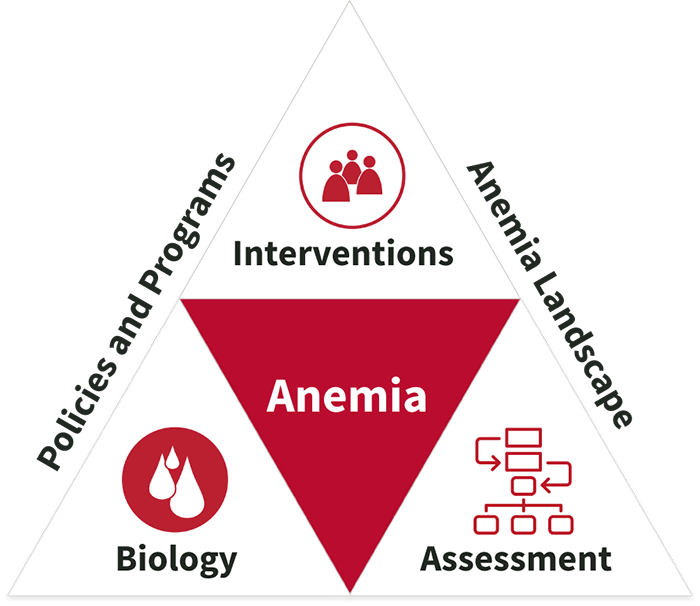The various causes of anemia require diverse and context-specific strategies to strengthen multi-sectoral anemia policy and programming. Policy-makers and program planners have developed population-level policies to reduce anemia to allow for efficient allocation of available resources.
To reach populations in need, translate policies into programs. Practitioners should design these programs designed with an eye for sustainability by incorporating the latest information on cost and cost effectiveness, with the goal of reaching the populations most vulnerable to micronutrient deficiencies and poor health.
We found 62 resource(s)
Undernourished and Overlooked: A Global Nutrition Crisis in Adolescent Girls and Women
Brief published by UNICEF in
This report examines the current status, trends, and inequities in the nutritional status of adolescent girls and women of reproductive age, and the complex cultural, programmatic, and policy barriers they face in accessing nutritious diets, utilizing essential nutrition services, and benefiting from positive nutrition and care practices. The…
Comprehensive Framework for Integrated Action on the Prevention, Diagnosis, and Management of Anemia: An Introduction
Guideline/Guidance published by Ann N Y Acad Sci in
In 2021, the World Health Organization (WHO) announced in 2021 a commitment to develop a comprehensive framework for integrated action on the prevention, diagnosis, and management of anemia and to establish an Anaemia Action Alliance to support the implementation of the framework. WHO commissioned four background papers to reflect on the most…
Accelerating Anaemia Reduction: A Comprehensive Framework for Action
Guideline/Guidance published by World Health Organization in
This document is an output of a World Health Organization cross-program initiative aiming to improve the prevention, diagnosis, and management of anaemia and thereby accelerate reduction of its prevalence. This framework is based on the core principles of primary health care: meeting people’s health needs through comprehensive promotive,…
Integrating and Coordinating Programs for the Management of Anemia Across the Life Course
Literature Review published by Ann N Y Acad Sci in
This narrative review describes the determinants of anemia and outlines opportunities for comprehensive anemia programming, systems strengthening, and implementation research approaches for preschool children, adolescent girls, and pregnant and nonpregnant women of reproductive age
Anemia Briefs
Brief published by USAID Advancing Nutrition in
The USAID Advancing Nutrition Anemia Task force, a group of leading experts in anemia research and programming, has developed a report that addresses the complex "ecology" of anemia. We recommend an ecological approach to understand anemia, where we can utilize our knowledge of systems biology to suggest sensitive and specific assessment…
Exploring the Anemia Ecology: A New Approach to an Old Problem Webinar
Webinar published by USAID Advancing Nutrition in
The USAID Advancing Nutrition Anemia Task Force, a multi-disciplinary panel of experts, developed a comprehensive report on anemia that draws from both sentinel and emerging data to help address this gap. The task force recognized that anemia represents an “ecology” (i.e., a complex system interacting with its internal/biological and external/…
Scoping Review of Intervention Strategies for Improving Coverage and Uptake of Maternal Nutrition Services in Southeast Asia
Journal Article published by International Journal of Environmental Research and Public Health in
This review recommends diverse strategies and delivery mechanisms, including health education, supplementation, community participation, and robust health system responses to achieve effective maternal nutrition programs.
Mass Deworming for Improving Health and Cognition of Children in Endemic Helminth Areas: A Systematic Review and Individual Participant Data Network Meta‐Analysis
Systematic Review published by Campbell Systematic Reviews in
This Cambell Systematic Review synthesizes the evidence pertaining to the impact of differing types and frequency of deworming drugs on anemia, cognition, and growth across potential effect modifiers. Evidence from 19 studies suggests little effect on nutritional status or cognition; however, children with heavier-intensity infections may benefit…



